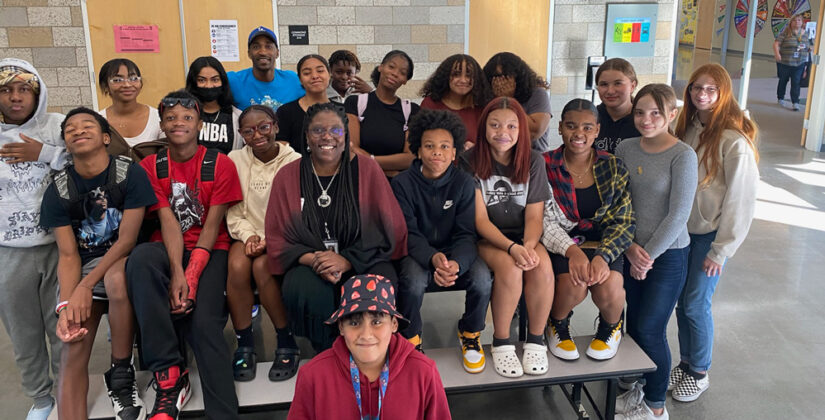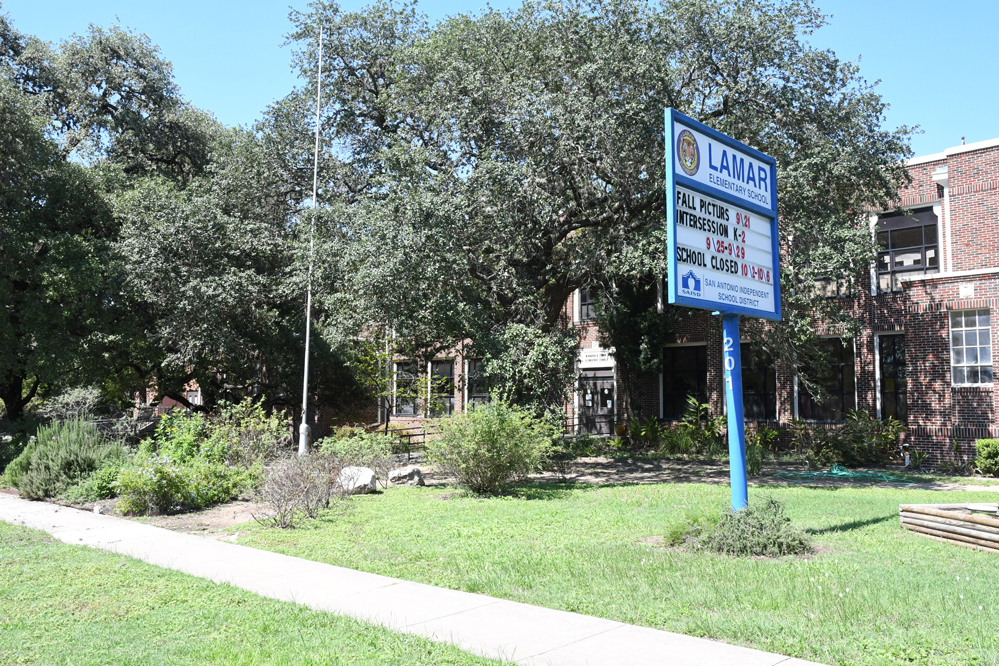Exclusive Data: As Post-Pandemic Enrollment Lags, Schools Compete for Fewer Students
Lost students, dwindling relief funds and a juggernaut of new choice options portend tough decisions ahead for the nation’s education system
By Linda Jacobson | May 10, 2023Three years and counting since the pandemic shuttered schools and tethered students to their laptops, new data shows that enrollment in the vast majority of the nation’s largest school districts has yet to recover.
Kindergarten counts continue to dwindle in many states — evidence of falling birth rates and an ever-growing array of options luring parents away from traditional public schools. Experts fear those trends, as well as a possible recession and the looming cut-off of federal relief funds, amount to a perfect storm for U.S. education.
The $190 billion in pandemic aid that was provided to schools allowed many districts to temporarily salve the loss of funds tied to falling enrollment and delay cuts to staff and programs. Those funds dry up in 17 months. As budget deficits grow and housing costs drive families out of urban areas, education leaders are staring down a host of unpalatable options, from closing half-empty buildings to laying off staff.
“I’m not a pro-school closure guy. That’s the worst part of school reform,” said Brian Eschbacher, an enrollment consultant and a former Denver Public Schools official. “But if anyone was holding out hope for a bounce back, we have put that to rest.”
The Parkrose School District, outside Portland, Oregon, is one of many grappling with a budget shortfall.
“We have some decisions to make in the next few months,” said Sonja McKenzie, a board member in the district, where enrollment has fallen 12% since 2018. Now leaders might have to slash positions for special education assistants. Talk of layoffs is also surfacing in California, Washington and Wisconsin.

McKenzie went door-to-door last fall asking voters to approve a tax levy to fund 22 positions, reminding them that the district, where nearly 30% of students are Hispanic, heeded their call to hire bilingual family liaisons. Voters rejected the measure.
Some families, she said, have been “priced out” of the area, heading east to Gresham or across the Columbia River to Vancouver, Washington, where they can find more affordable housing. Those areas, McKenzie said, have “benefited from our challenges.”
Desperation and aspiration
The 74’s enrollment analysis is based on figures from 41 states provided exclusively by Burbio, a data company, and additional data from the nation’s 20 largest school systems.
Since last year, enrollment has declined 2.5% in Chicago, 2.4% in Houston and 2% in Nevada’s Clark County, while New York and Los Angeles saw drops of just under 2%. The Hillsborough County district in Florida, which includes Tampa, and the Gwinnett County School District, near Atlanta, are the only two large districts where enrollment now exceeds pre-pandemic levels.
Large district enrollment trends from 2018-19 to 2022-23
The graphic below shows enrollment trends for the nation’s 20 largest school districts. Divided by region, the breakdowns include changes in overall enrollment as well as in kindergarten. (Click here if you’re having trouble viewing the chart)
In California, which has seen a whopping 5% drop in its student population since 2020, the enrollment decline has slowed, according to statewide data. But the downward slope in birth rates and exodus of parents from high-priced areas has left district and charter leaders with limited options.
Summit Public Schools in California’s Bay Area — a well-established charter network that spawned an online learning platform still used by 300 schools nationwide — will shutter one of its campuses at the end of this school year.
Following a community sit-in and hunger strike in Oakland, the local school board decided in January not to close several schools. Now, amid an ongoing teacher’s strike, the board is reconsidering whether to merge some schools because of enrollment decline.
“There is always this quality and convenience tension,” said Lakisha Young, CEO of Oakland Reach, a parent advocacy organization. “Everyone wants a school in their neighborhood that they can walk their kids to.”
But she called the emotional debate over closing schools a distraction from more important issues — namely that a majority of students aren’t reading on grade level. A third of families in the city don’t choose district schools, and some have moved further inland to Antioch or southeast to the Central Valley.
“If people have the opportunity to move to other places that are slower and quieter and safer, they are going to do that,” she said. “These decisions are not just made out of desperation, they are also out of aspiration.”
‘You just come here’
Some of those same aspirations are fueling a Republican push to give unhappy parents more options. Twelve states now offer education savings accounts, which allow families to use public funds to pay the costs of private school or homeschooling. Despite pushback from critics who argue such programs take funding away from public schools and lack accountability, similar legislation has been introduced in several more states, including Alabama, Louisiana and North Carolina.
“This pandemic was the perfect incubation event that really caused homeschooling to thrive,” said Bob Templeton, another enrollment consultant with Zonda, a housing market research company. “We’re seeing this dramatic change in how we educate kids.”
In Texas, where the legislature is currently battling over an ESA bill, existing options like charters and homeschooling have contributed to a decline in what Templeton calls the “capture rate” — the percentage of children from a particular community attending their local public school.
“If they’re down 200 kids in kindergarten and it doesn’t return, then in five to seven years, that district is going to be down several thousand kids,” Templeton said. “You need to get ready to close schools.”
Statewide enrollment shifts since 2021-22
*Click the circle next to state to see districts with the greatest enrollment gain, greatest enrollment loss and % change for state’s largest district. (Click here if you’re having trouble viewing the chart)
He consults for districts surrounding some of the state’s large urban systems and used to be able to reliably calculate that 100 new homes would result in 50 more students. Not anymore.
He also monitors transfers between districts. One school system he works with, Pflugerville, near Austin, took in 584 students from other systems this year. But almost 5,400 transferred out to both charters and other districts. Leaders have put off closing schools for now, which Templeton said just “kicks the can down the road.”
He and Eschbacher advise districts to stay competitive by designing school models that parents want. In some cases, that’s paying off.
The San Antonio Independent School District has had success with a 2017 state law that provides incentives to partner with charters and nonprofit organizations to run schools.
Rebecca McMains decided to enroll her daughter in one of them, Lamar Elementary, after considering close to 10 public, private and charter schools in the area. Because her daughter has disabilities and an “elaborate” special education plan, the choice wasn’t easy.

“I knew I was going to be heard at Lamar. They are very parent-focused,” said McMains. She said staff members respond to her texts and don’t push back when she has a request, like having a nurse accompany her daughter on a field trip to NASA. “I’m now being thanked for my advocacy.”
But some parents have found their local public schools loath to accommodate the needs of those they are used to seeing as a captive audience.
Jana Wilcox Lavin, a Las Vegas mom, runs Opportunity 180, a nonprofit that supports school choice and formerly led a statewide district that converted low-performing schools into charters. Nonetheless, she was willing to consider her Clark County neighborhood school for her daughter, who starts kindergarten in 2024.
When she called the local school to ask for a tour, officials turned her down, citing concerns about student privacy. She turned to a district administrator, who said she could visit the building but not observe classrooms. Spokesman Tod Story said that while no policy prohibits parents from visiting schools, officials “err on the side of caution to protect our students.”
Lavin said she just wanted to make a well-informed choice.
“When I asked how I should assess if the zoned school was a good fit,” she said, “I was told, ‘We are your neighborhood school. You just come here.’ ”
An ‘absolute asteroid’
That’s less true than ever before. The options available to families have expanded so rapidly that researchers are struggling to keep up.
Counts of how many students are homeschooled are estimates at best and private school enrollment figures can be a year or two behind. That’s one reason Thomas Dee, a Stanford University education professor who tracks enrollment trends, was unable to account for more than a third of students who left public schools.
That uncertainty makes it hard to tell whether the American school system is experiencing temporary chaos or a more permanent sea change.
Nat Malkus, the deputy director of education policy at the conservative American Enterprise Institute, called the pandemic an “absolute asteroid” of a disruptive event. Still, he doesn’t expect ESAs or other emerging models to cause as much damage to the public education system as some critics predict.
“It’s hard to overestimate the incumbent’s strength,” he said.
That’s the case in Florida, where enrollment grew 1.3% this year and the Hillsborough district expects to keep building schools for years to come to accommodate growth.
In states with declining numbers, like Oregon, district leaders are more wary. School choice advocates hope to get an ESA initiative on the ballot next year, but McKenzie, the Parkrose board member, is concerned such a program would hobble district schools that are already strapped for cash.
“I can understand a parent may feel like they have a better option,” she said.“But it creates a divisive system of who has the resources and who doesn’t. Less resources for the classroom impacts the whole community.”
Get stories like these delivered straight to your inbox. Sign up for The 74 Newsletter

